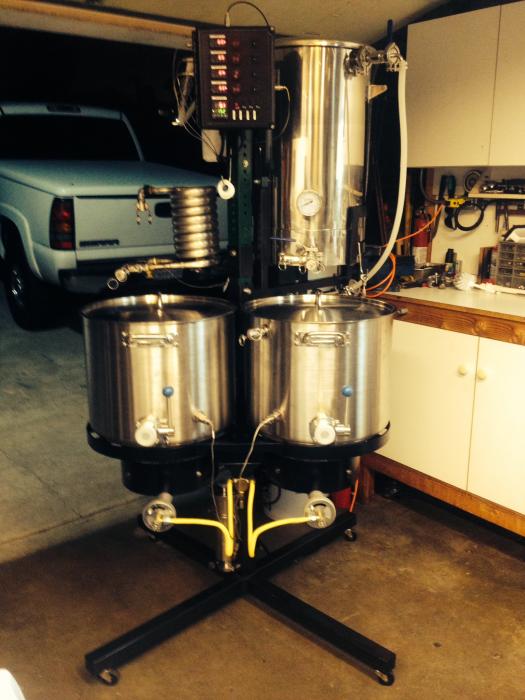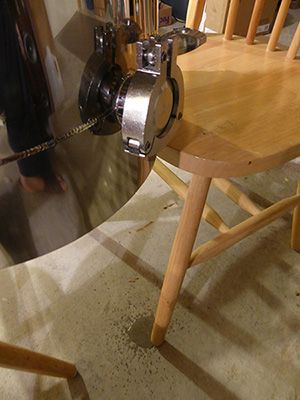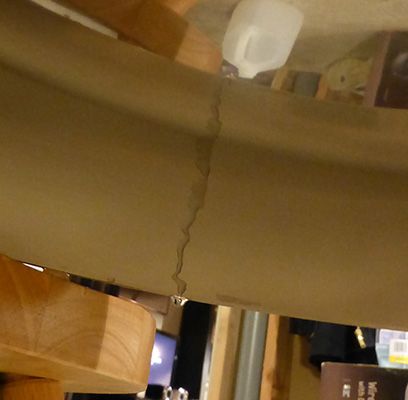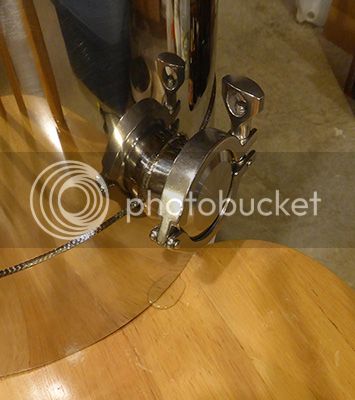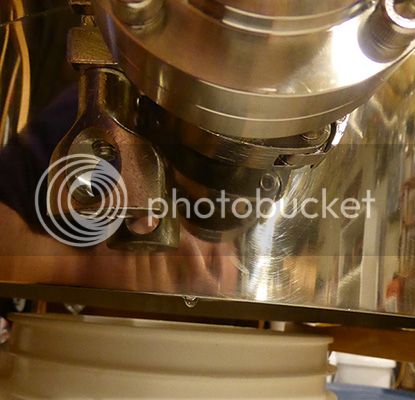Why do you need your boil kettle sanitary? When you boil the wort in it you will effectively sanitize the pot to the same degree as the wort.
Because there are various microorganisms out there which can do nasty things even after being exposed to boiling conditions.
Botulism is one such thing - C. bot spores can survive boiling conditions, and until there's enough alcohol developing in the wort, they could grow.
There's another nasty little fellow out there called Bacillus cereus - it can produce a neurotoxin that can even survive a sterilization process, even if the bacteria are killed off. Suppose you get a little bit of trub or something caught against a weldless bulkhead's gasket and you miss it when you clean after making a batch. A spore of B. cereus ends up there. It starts growing, eating what it can, cranking out its toxins, and then runs out of food and new spores go dormant. If you hit it with some Star-San before you brew, it might kill the spores, but the toxins could be left behind, and make it into your next batch.
Effective sanitation requires a few elements:
1) Sufficient time exposure to temperature and/or chemicals.
2) All surfaces must be free of visible product residue before you even start chemical sanitation.
3) Mechanical agitation (whether sprayballs in a tank, scrubbing by hand, or by high-velocity fluid flow)
4) All equipment must be designed with no points that can harbor contaminants. That means surfaces must be smooth (generally, equivalent to a 180-220 grit finish or better), with no sharp corners or crevices that are difficult to clean. By default, that excludes threaded fittings or weldless assemblies unless you tear them down and manually clean everything. Hose barbs too, unless you take the hose off the barb. When you buy sanitary hoses (and you pay big $$$), you get something with tri-clamp ends that has the hose material joined with a stainless insert that has a very smooth, flush transition.
Plate heat exchangers can be sanitized effectively with a CIP system, provided that you're filtering out your trub pretty well, and you've got a lot of flow. A March 809 with minimal head loss would be marginal for the plates we all use. The "throw-it-in-the-oven" method would be OK - 350F for long enough would be enough to even destroy spores and heat-stable neurotoxins.
At work, we've got a milk pasteurizer (basically, a plate heat exchanger that's 2x6x6 feet) that runs about 120 gallons/minute during production. At the end of the day when we CIP, there's a booster pump that takes the flow up to more like 300+ GPM to get the mechanical agitation in the plate needed to clean effectively.
Sorry for the brain dump - food safety is something that is a very serious subject at work.









![Craft A Brew - Safale S-04 Dry Yeast - Fermentis - English Ale Dry Yeast - For English and American Ales and Hard Apple Ciders - Ingredients for Home Brewing - Beer Making Supplies - [1 Pack]](https://m.media-amazon.com/images/I/41fVGNh6JfL._SL500_.jpg)














































